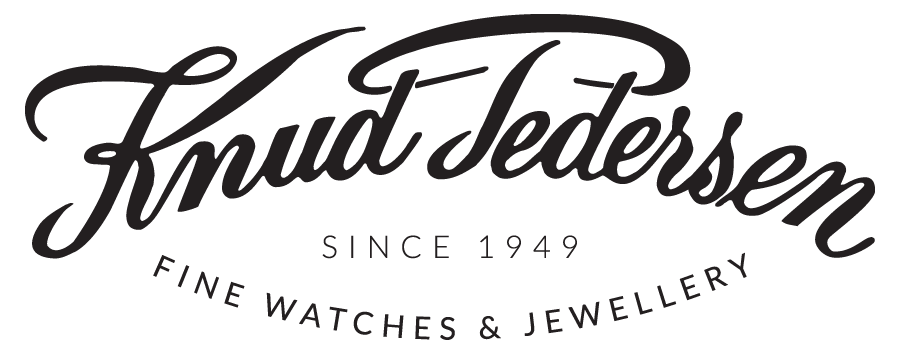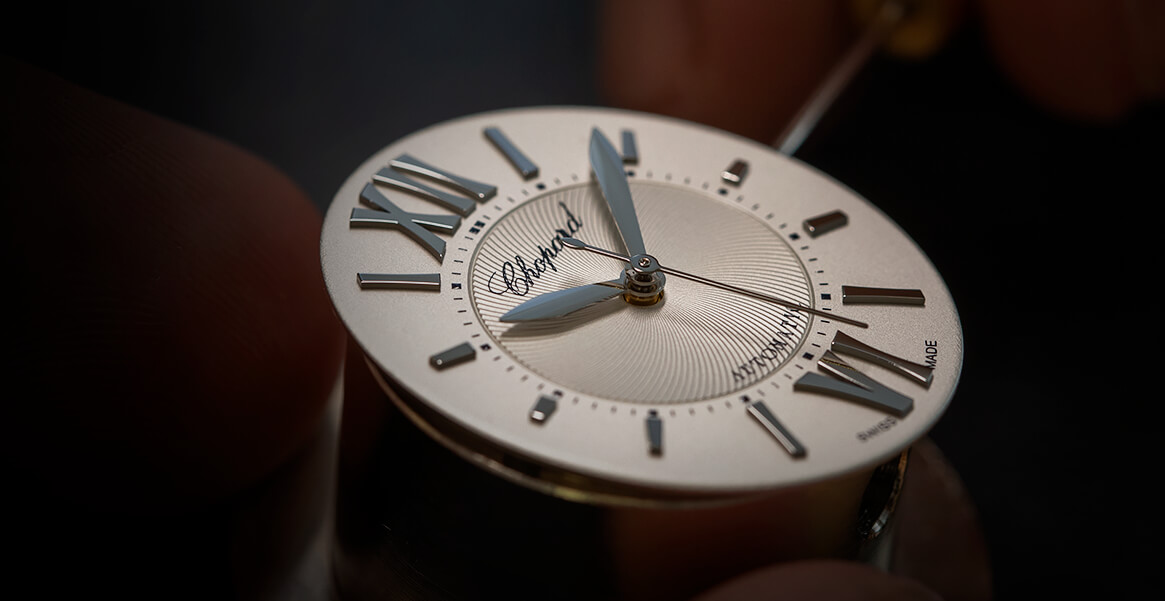
CHOPARD
HISTORY
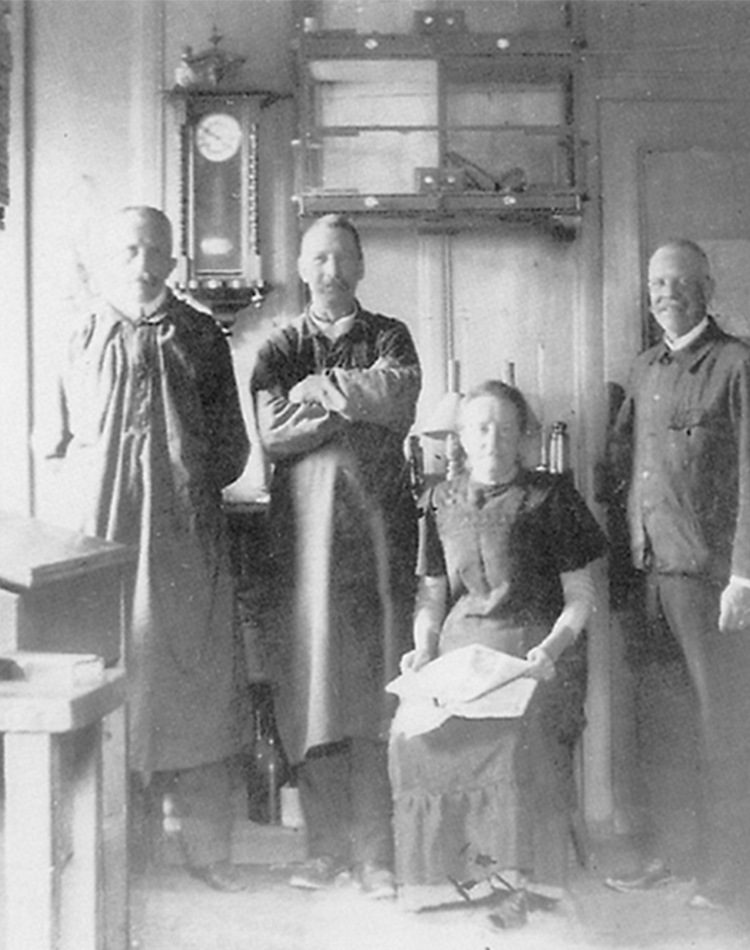
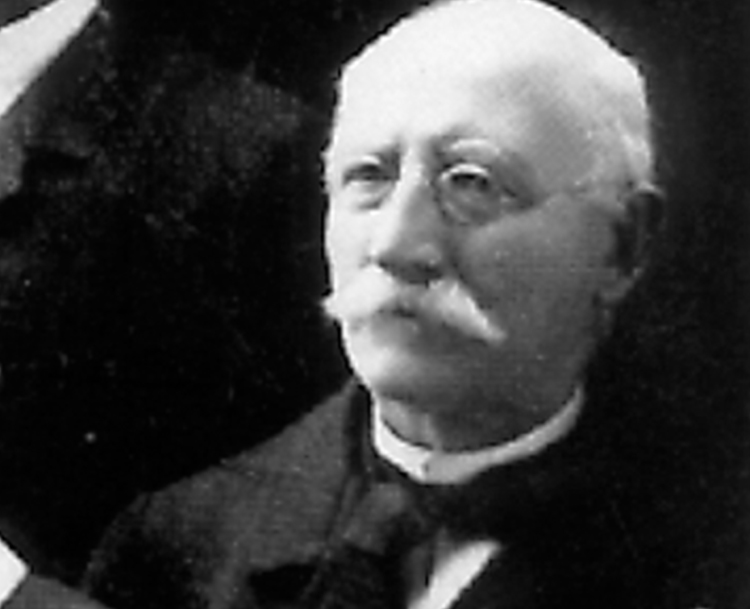
LOUIS-ULYSSE CHOPARD, THE FOUNDER
Louis-Ulysse Chopard (1836-1915), the son of a farmer from Sonvilier, quickly conquered Switzerland and the world at the age of 24. The artisan watchmaker created works of art with innovative designs, which early on helped him export to such illustrious places as the court of Tsar Nicholas II of Russia. Qualities like precision and reliability were very sought-after characteristics in watches, dating all the way back to the 19th century. With unique chronometers and pocket watches, LouisUlysse Chopard aimed to fulfill and exceed these "desires".
19TH CENTURY WATCH CREATIONS
BY CHOPARD
Thanks to its superb timekeepers, Chopard forged itself a reputation for reliable and high quality watches made in Switzerland. From the start, Chopard won two very prestigious commissions, becoming official provider of watches for «Tir Fédéral» and the Swiss Railway Company. Louis-Ulysse Chopard travelled to Russia, making his way through Poland, Hungary and the Baltic States. Tsar Nicholas II of Russia was one of his clients. He also struck business with a number of Scandinavian retailers who self-branded his timepieces. Chopard watches thus penetrated the international market.
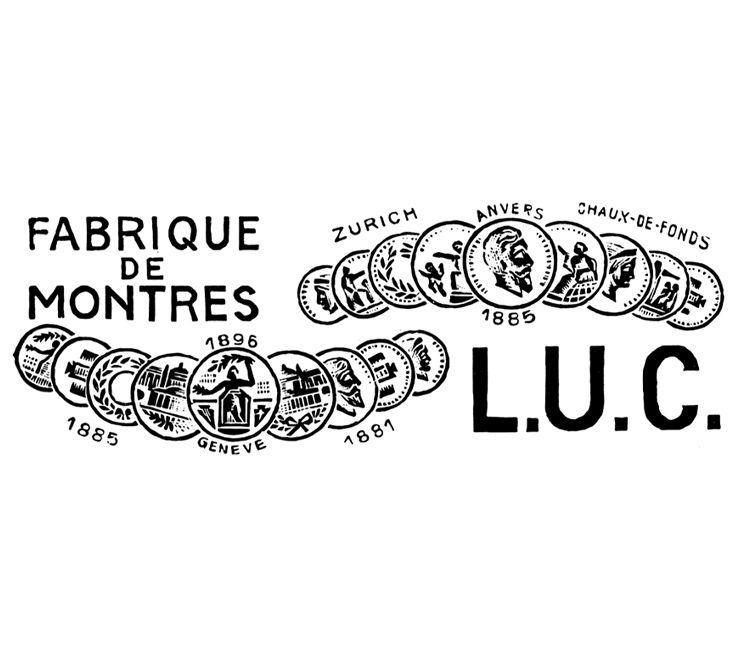
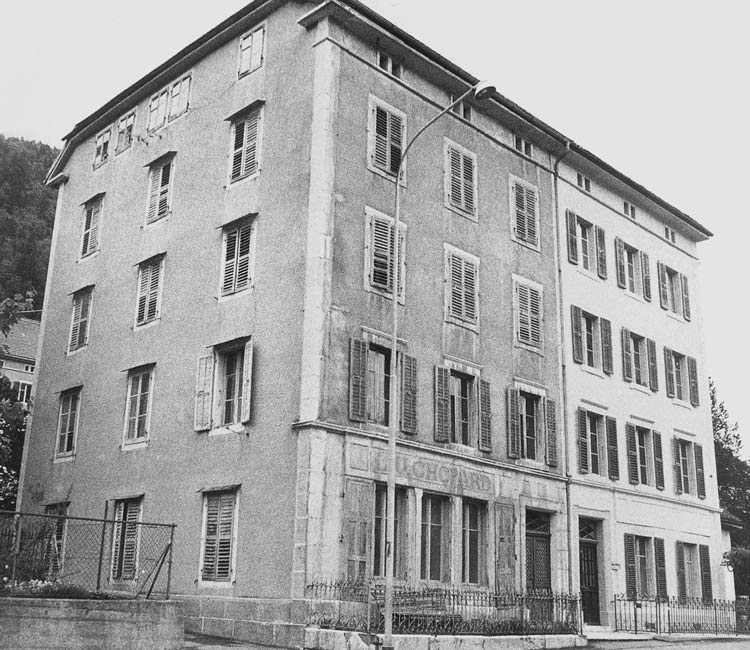
SONVILIER: THE ESSENCE OF SWISS WATCHMAKING
In Sonvilier, as throughout the Swiss Jura region, local farmers would complement their meagre winter income by assembling watches according to a well established custom that saw watchmaking production tasks be allocated across small independent and specialised units. The components would then be collected -in the case of Chopard by the master watchmaker himself- to then be assembled and fine tuned into the finished product.
FROM THE SWISS JURA TO GENEVA UNDER THE AEGIS OF PAUL-LOUIS CHOPARD
Paul-Louis Chopard (1859-1940), Louis-Ulysse’s son, took over the company reins in 1915 and opened a branch in the nearby industrial town of La-Chaux-de-Fonds that would later become the seat of the company. A few years later, in 1937, he relocated the company to the international watchmaking and business centre of Geneva.


PAUL-ANDRÉ CHOPARD
Paul-André Chopard (1898-1968), son of Paul-Louis, took over from his father in 1943. The after-war period proved challenging and the company, which by then employed only five staff, was on the decline. In the 1960s, Paul-André started considering selling his company as none of his sons were keen to follow after him.
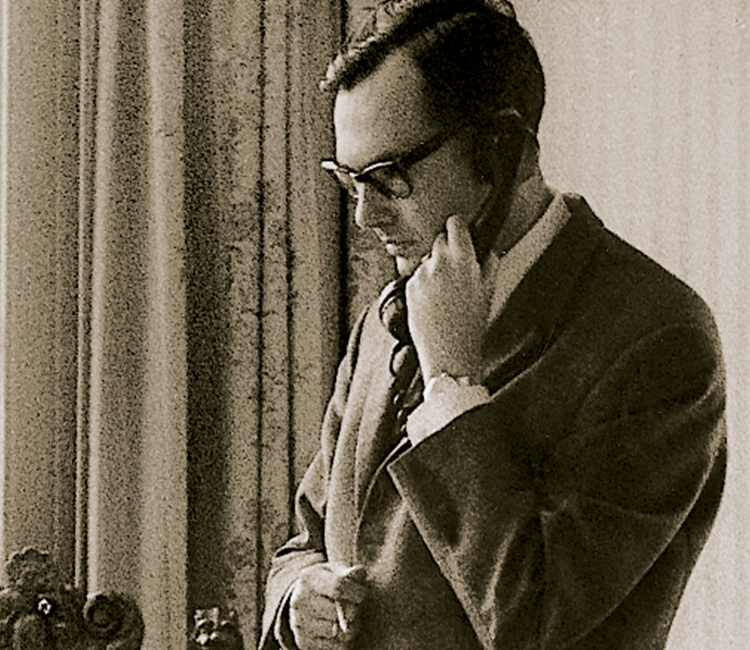
KARL SCHEUFELE AND THE
TAKEOVER OF CHOPARD
At the same time in Pforzheim, Germany, Karl Scheufele III, goldsmith and watchmaker, son and grandson of entrepreneurs, was seeking to develop ESZEHA, the jewellery and watch company he owned. Reliant on suppliers for his watch movements, he considered acquiring a Swiss manufacture. With this goal in mind, he published an advertisement in the newspapers and went to Geneva to meet potential leads. On the last day of his trip he contacted the last name on his list and met Paul-André Chopard. Karl Scheufele knew from that instant that they were meant to get along; thirty minutes later, the deal was sealed.
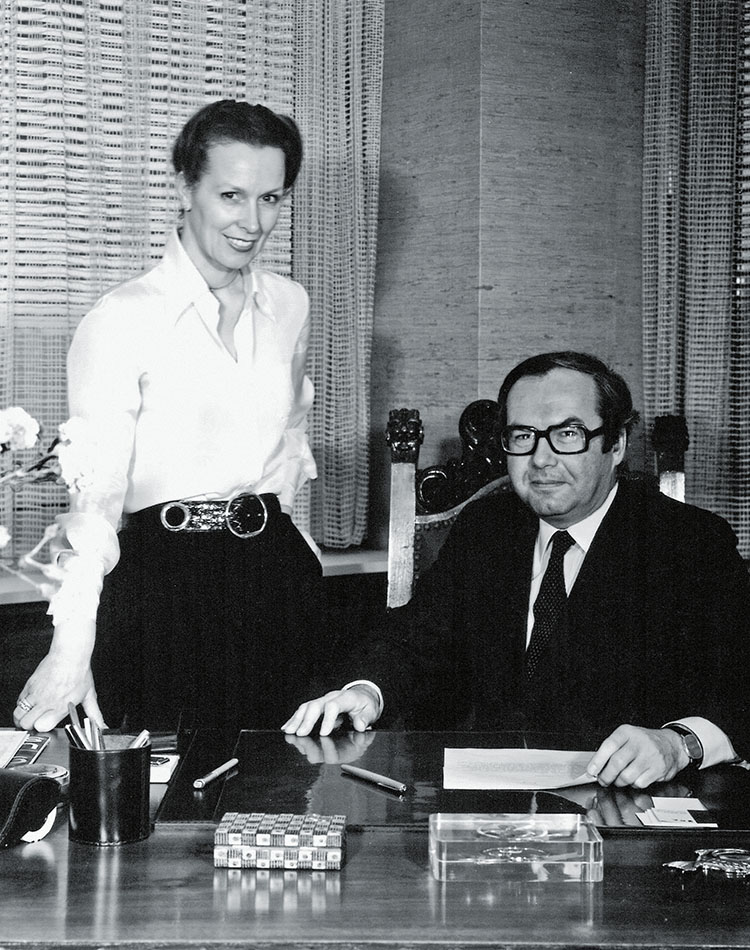
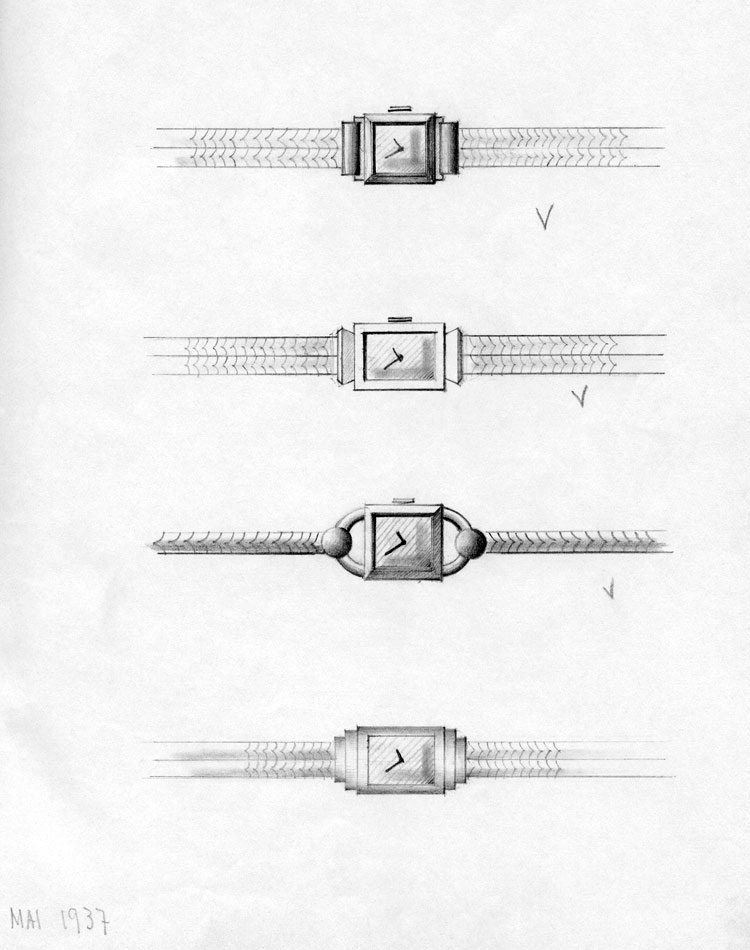
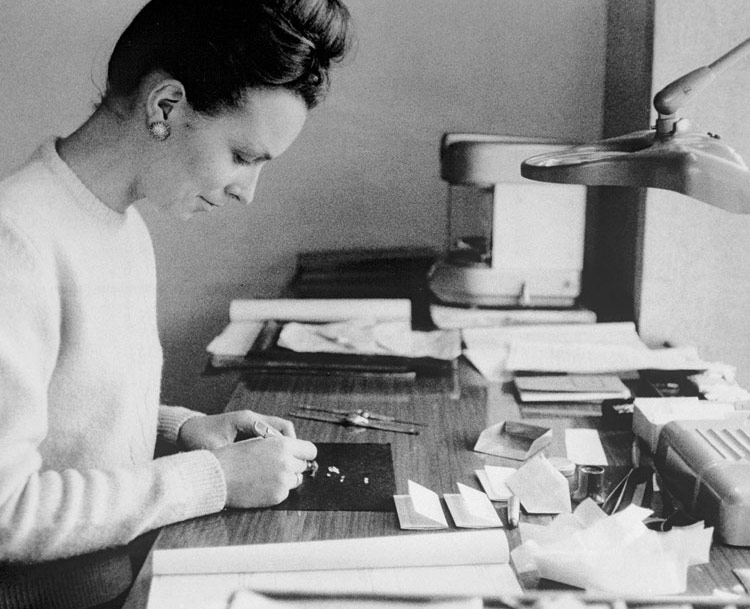
KARL SCHEUFELE III AND HIS WIFE
KARIN
In 1957, the young Karl married Karin Ruf. Her father, Fritz Ruf was a dynamic entrepreneur and proved a key supporter of the young couple’s success. Acquiring a manufacture offered the goldsmiths of Pforzheim the opportunity to join the closed circle of major Swiss watchmakers. Thanks to his commercial acumen and passion for travel inherited from his father and grandfather, Karl Scheufele III would go on to lift Chopard out of its lethargy and build an empire.
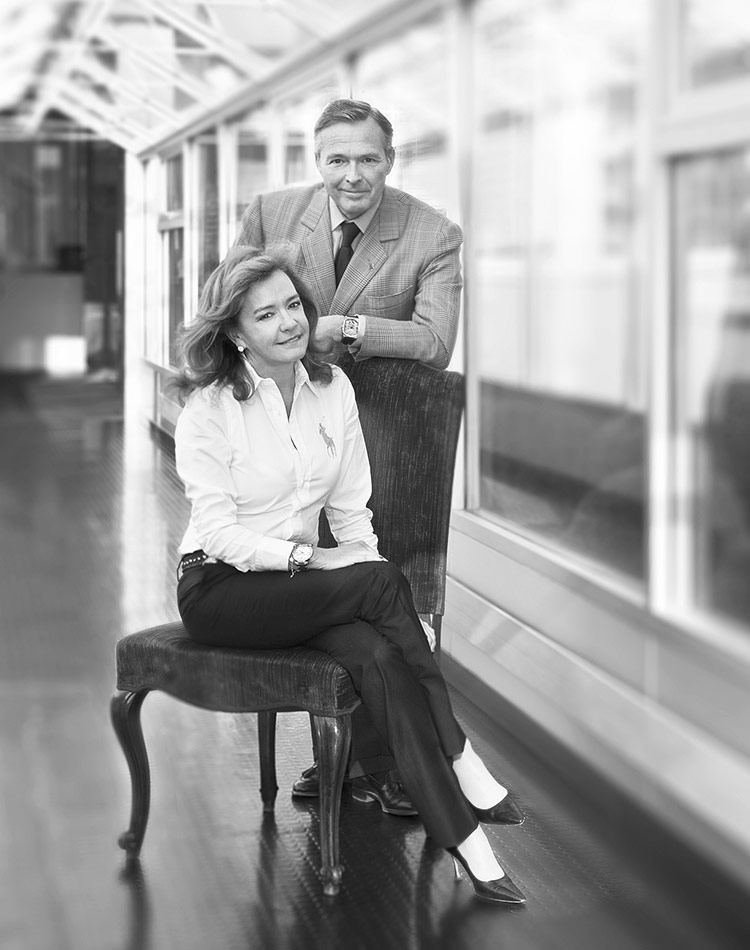
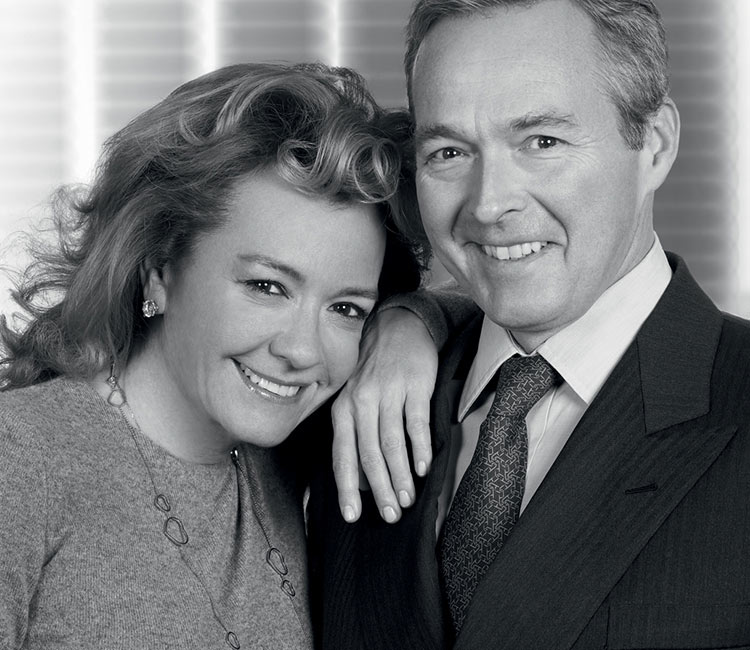
THE HEIRS OF THE SCHEUFELE
FAMILY
Chopard is one of the last family-run watchmaking and Jewellery Company. Since the 1980s, Karl and Karin’s children Caroline and Karl-Friedrich have played an active part in the company. Caroline and Karl-Friedrich are Chopard’s current Co-Presidents. They each showed their independence: Caroline Scheufele, who is responsible of the ladies’ collections, developed the jewellery section and later the high-end jewellery department while her brother Karl-Friedrich, who managed the men’s collections, developed sports watches during the 1980s and the Chopard Manufacture in Fleurier, which produces the L.U.C movements, in the 1990s.
